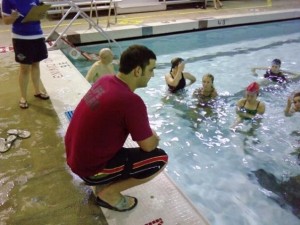Preventing swimming injuries
Swimming has always been an enjoyable activity as well as an engaging sport. On the other hand, the occurrences of swimming injuries are increasing due to various reasons, including inability to swim and lack of appropriate gear.
It is important to learn how to swim and avoid swimming alone if you are not skilled enough. Only swim in supervised areas that have lifeguards. Individuals who are inexperienced must wear life jackets while in the water. Do not engage in swimming if you are too cold, too tired or overheated.
Those who are swimming in open water should not enter head first. Always check if the water is free from any hazards as well as undercurrents. After a storm, avoid swimming in a river or lake if the water is rising or if flooding is possible since the currents can become strong.
Safety when diving
When it comes to diving, always check the water if it is shallow. If the water is murky, do not attempt to dive in. Always bear in mind that you should be able to see the bottom of the pool clearly.
In case there is a diving area, check the shape to ensure that it is deep enough. When diving, dive at the end of the diving board. Avoid running or bouncing on the board and make sure that only one individual is using the board at a time.
[youtube url=”http://www.youtube.com/watch?v=rgo3g-Ge85Y”]Swim to achieve the ideal fitness level
Swimming is a good way to exercise the entire body but before engaging in the sport, there are certain considerations to bear in mind. Initially, always warm up and stretch properly. It is a known fact that cold muscles are at risk for injury.
One of the common swimming injuries is shoulder pain caused by repetitive motion. The best way to prevent this injury is by engaging in an exercise program that helps strengthen the muscles surrounding the shoulder and upper back.
In case the individual has fever, ear infection or upper respiratory tract infection, it is recommended not to swim vigorously.
Swimming in a private pool
When swimming in a private pool, there are certain things to consider.

- The guests should be well-informed regarding the pool before use such as the lighting, depth markings, surface, time of use and the location of the diving board.
- There should be established hours for pool use and it must be secured with fencing to keep out individuals during inappropriate hours.
- Guests should not swim alone or drink alcoholic beverages while swimming.
- If the pool is being used, there should be a personnel trained in water safety and life-saving techniques.
It is important to be knowledgeable about first aid and should know how to deliver it for minor injuries such as sprains, strains and facial cuts. In case of emergency situations, it is best to seek emergency assistance for serious injuries such as fractures, concussions and dislocations.
